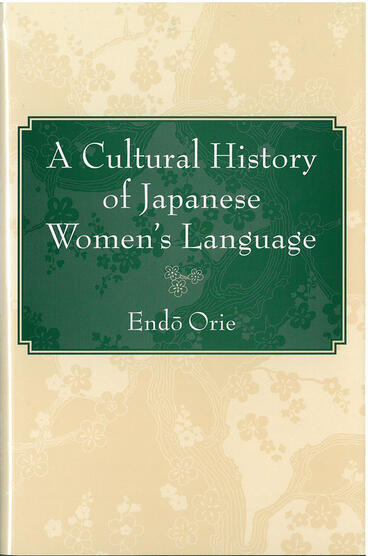A Cultural History of Japanese Women’s Language
Explores Japan’s early literature to trace the development of social mandates for women’s use of language
Description
Among Japanese nostalgic for older times, as well as students and scholars of Japanese, it is commonly assumed that the Japanese language possesses special words reserved for women. Did these “women’s words” actually exist at the very beginnings of the Japanese language? If such words were in fact part of the language, what kinds of attitudes and treatment toward women were inscribed in them? In her endeavor to address these questions, Endō Orie explores Japan’s early literary works to discover what they have to say about the Japanese language. Among her most significant conclusions is the finding that “womanly” language in Japan was socially mandated and regulated only with the beginning of warrior rule in the Kamakura period. Now, in contemporary Japan, critics charge that women’s language has lost its “womanly” qualities and has veered perilously close to men’s language. However, if we look at the evidence of history, what we may actually be witnessing is a return to the origins of the Japanese language when no sexual distinctions were made between users.
Endō Orie is Professor in the Department of Cultural Linguistics at the Koshigaya Campus of Bunkyō University (Tokyo). Her best-known works are Ki ni naru kotoba: Nihongo no saikentō (Words that concern me: A reconsideration of the Japanese

